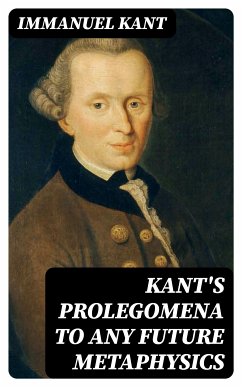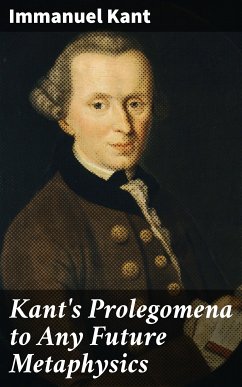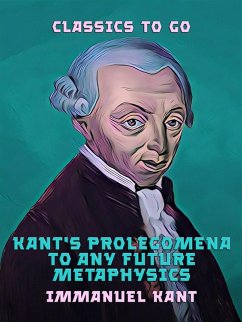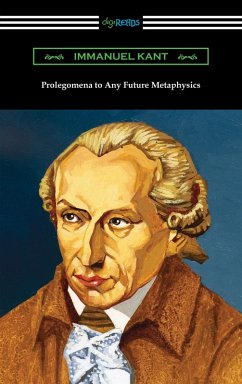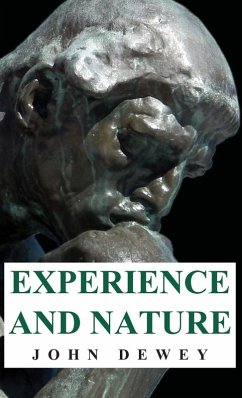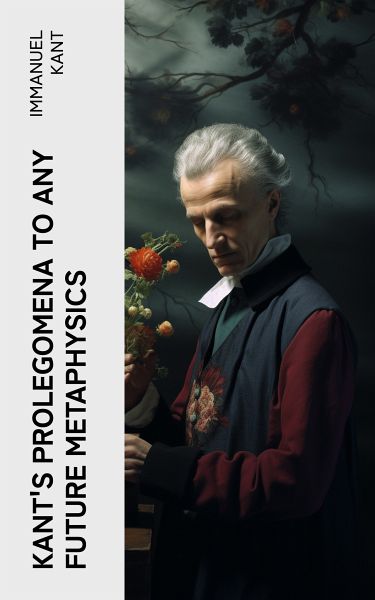
Kant's Prolegomena to Any Future Metaphysics (eBook, ePUB)
Versandkostenfrei!
Sofort per Download lieferbar
1,99 €
inkl. MwSt.
Weitere Ausgaben:

PAYBACK Punkte
0 °P sammeln!
This is a book by the German philosopher Immanuel Kant, published in 1783, two years after the first edition of his Critique of Pure Reason. One of Kant's shorter works, it contains a summary of the Critique's main conclusions, sometimes by arguments Kant had not used in the Critique. Kant characterizes his more accessible approach here as an "analytic" one, as opposed to the Critique's "synthetic" examination of successive faculties of the mind and their principles.
Dieser Download kann aus rechtlichen Gründen nur mit Rechnungsadresse in A, B, BG, CY, CZ, D, DK, EW, E, FIN, F, GR, H, IRL, I, LT, L, LR, M, NL, PL, P, R, S, SLO, SK ausgeliefert werden.





